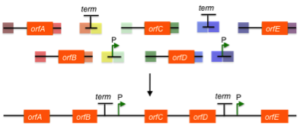
j5, modular software applicable across the multi-billion dollar DNA synthesis market, is saving time and money as companies search for new medicines, feasible bioenergy solutions, and greater understanding of biotechnology challenges. The technology is used at no cost in hundreds of research institutions and has been licensed for commercial use by startup TeseslaGen.
Medical, biotechnical and bioenergy companies use decades-old, time consuming approaches to clone DNA. In 2010, constructing a combinatorial protein library with 243 constructs cost an estimated $125,000 and took 11 months with traditional cloning. Direct DNA synthesis, while providing results in about 2 months, cost $538,000.
Researchers at the Joint BioEnergy Institute (JBEI), a multi-institutional research center led by Lawrence Berkeley National Laboratory, initially developed j5 software to automate the construction of biofuels pathways from DNA building blocks. Researchers then created a modular technology applicable to a wide range of biotechnical applications that improved the accuracy, scalability and cost effectiveness of DNA synthesis. With j5, a 243-construct combinatorial protein library can be built for $30,000 in less than 2 months allowing companies to achieve their goals more rapidly, whether designing new medications, understanding the nature of disease, or developing new microorganisms for bioenergy solutions.
j5 was first made available, at no cost, to government, nonprofit and academic research centers. Today, the software is used free-of-charge by researchers in hundreds of non-commercial institutions. Recognizing the business potential for a technology that saves significant time and resources in the multibillion-dollar DNA synthesis market, startup TeselaGen licensed j5 and related software in 2011. TeselaGen has collaborated with industry leaders such as Genomatica to speed development of organisms used in making chemicals from renewable feedstocks and Redbiotec to build a vaccine library that could lead to new or more effective vaccines against shingles, chickenpox and related illnesses.